…by Jonas E. Alexis
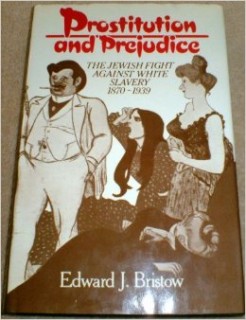 Jewish historian Edward J. Bristow notes in his book Prostitution and Prejudice that “between 1880 and 1939, the Jews played a conspicuous role in ‘white slavery,’ as the commercial prostitution of that era was dramatically called. Not only was this Jewish participation conspicuous, it was historically unprecedented, geographically widespread, and fraught with collective political dangers.”[1]
Jewish historian Edward J. Bristow notes in his book Prostitution and Prejudice that “between 1880 and 1939, the Jews played a conspicuous role in ‘white slavery,’ as the commercial prostitution of that era was dramatically called. Not only was this Jewish participation conspicuous, it was historically unprecedented, geographically widespread, and fraught with collective political dangers.”[1]
The prostitution business ranged from “almost all parts of North and South Africa, to India, China, Japan, Philippine Islands, North and South America, and also to many of the countries of Europe” where “Yiddish speaking Jews are maintaining a regular flow of Jewesses, trafficked solely for the purpose of prostitution.”[2]
In the late 1860s, there was a small Jewish population in Paris, and it was well known that Jews were disproportionately involved in prostitution there. In fact, “Jewish prostitutes were familiar enough in Paris to have served as the basis for something of a literary convention.”[3]
At the dawn of the twentieth century, anti-Jewish crimes in places like Vienna were quite low, but “some Jews were involved in commercial vice and that was particularly unfortunate in Vienna, one of the breeding grounds for racial anti-semitism.”[4]
In the 1860s, the Viennese authorities tried to hunt down the traffickers, and their efforts were successful for a time.[5] In 1903, the Hamburg-Jewish Committee Against White Slavery declared with much chagrin that “the white-slave traffickers are in close contact in all parts of the world, in great cities as in small villages…in order to benefit fully from the techniques of the traffic and the advantages of combination.”[6]
In 1907, the London Jewish Chronicle noted that “almost every populous centre of Europe and America gives evidence of the extent to which Jewesses immolate themselves to the Moloch of illicit being.”[7]
There were Jewish pimps looking for “the livelihoods that were impossible in Russia, Romania, and Galicia [a region of east central Europe; part of Austria, then Poland, and now Ukraine]” in places like East Africa, Bulgaria, Bosnia, Greece, Turkey, Lebanon, Egypt, India, Ceylon, China, Manchuria, the Philippines, South Africa, Rhodesia, and even Mozambique.[8] Bristow writes:
“Police data for Alexandria in 1903 show that between 70 and 80 per cent of the prostitutes in tolerated houses there were Jewish women from Galicia, Bukovina, and Romania. At that time the Austrian Consul in the city arranged for the deportation of twenty-two Austrian and Romanian procurers, many of them well-known in the craft, individuals like Israel Klopper of Rio and Joseph Stark, who turns up in the 1915 Constantinople police raid.”[9]
Rudolph, a Jew who converted to Christianity at the time, wrote that many of the Jewish women came voluntarily.[10] Constantinople in the mid 1870s had a colony of Ashkenazi Jewish families who were
“involved in commercial vice and it was an entrepot for all points east. According to the Anti-White-Slavery Committee at Alexandria, whose president was the Jewish notable Baron Jacques de Menasce, the ‘customary itinerary’ from Europe was ‘Alexandria, Cairo or Port Said, Bombay, Colombo, Singapore, Saigon, Hong Kong, and Shanghai.’”[11]
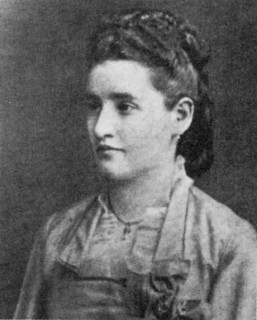
In 1862, when residence restrictions against Jews were removed in Warsaw,Poland, “Jews were already involved in the purveying of prostitutes toRussian military encampments, and that with the barriers down, Jewish men and women moved into commercial vice in the centre of Warsaw.”[12]
By 1889, there was a “prevalence of Jewish brothel-keepers in Warsaw,” where census data proved that between sixteen and nineteen whore houses were run by Jewish women.[13] (Keep in mind that the Jewish population has never been more than four percent in those areas.)
In 1889, the disproportionate number of Jewish women who ran brothels in Kherson province was stunning—of the 36 licensed brothels there, 30 of them were run by Jewish women.[14] Similar data was shown to be true by 1910 in Russia.[15]
This was also true in America, where the American Consul declared that “the whole business of prostitution is almost exclusively in the hands of Jews.”[16]
By the end of the nineteenth century, a rabbinical court was established in Warsaw among a certain Jewish groups to “settle disputes between pimps.”[17] But by 1905, a number of Polish rioters took the issue further. “For three days they rampaged through brothels, looting and destroying furniture, knifing, beating, and defenestrating pimps and prostitutes.”[18]
Even earlier, when the masses began to take notice that Jews were leading the way in prostitution,
“Organized racial anti-Semitism developed in the Hapsburg capital in the 1870s and soon became endemic to all classes, from university students to artisans…By the following decade there was an anti-Semitic political party in parliament under the pioneering Georg Ritter von Schonerer and a popular anti-Semitic Karl Leuger took control of the Vienna city government.”[19]
Anti-Jewish attitudes continued in the year 1882 and beyond.[20] The mob knew of the undercover work of Jews such as Adolph Weissmann, Sigmund Reicher, Hersch Gottlieb, and Israel Klopper, who were very instrumental in establishing colonies of brothels in South America around the year 1879.[21]
In the early 1900s, Buenos Aires, Argentina, had a surplus of Jewish prostitutes and traffickers. People such as Bercia Bleiberg, Mottl Kerner, Friede Willinsberg, the Cohen family, the Rosenberg family, the Goldenbergs, the Goldstein brothers, and Jacob Zabladovitch had all come to Buenos Aires to open up brothels; some, like the Bleibergs, had to work part-time as house painters because of the competitive market.[22]
The Hertz family, who came into the United States from Hungary in the 1880s, did the same thing in New York. One observer noted that Rosie Hertz “would go from one coal cellar to another—from one shoe-making basement to another, and thus make money. She and her husband Jake lived frugally and with care and attention to their pennies and dollars.”[23]
Soon enough, they opened up their own brothels, and became one of the Jewish brothel pioneers in New York.[24] (In the early part of the twentieth century, sodomy was already known in places run by people like Big Aleck and Mortke Goldberg.[25] Venereal disease, of course, was widespread, and Solomon Neumann, a physician in New York, noted that 80 percent of the prostitutes had some form of sexually transmitted disease.[26])
The same pattern can be found in other places such as Brazil.[27] Israel Meyrowitz was a familiar name among traffickers, and Samuel Lubelski was known as “king of the border, king of the white slave traffickers, king of the agents.”
For their trafficking, Meyrowitz spent six months in prison, and Lubelski was sentenced to nine years (although his sentence was later reduced to three and a half years).[28]
PROSTITUTION AND ANTI-JEWISH REACTIONS
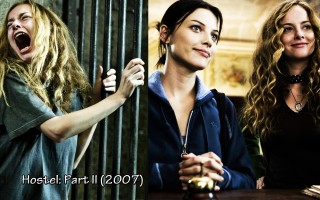 These kinds of incidents energized anti-Jewish reactions in places such as Germany.[29] Even in the United States, white slavery played a role in anti-Jewish attitudes.[30]
These kinds of incidents energized anti-Jewish reactions in places such as Germany.[29] Even in the United States, white slavery played a role in anti-Jewish attitudes.[30]
Scholar Sietske Altink laments that “Jewish trafficking in women,” among other things, increased feelings of anti-Semitism. The Zwi Migdal society was considered to be “the largest and most organized example of Jewish trafficking” in Argentina.[31] On some occasions anti-Jewish representatives would wait “at railway stations to catch traffickers in the act.”[32]
There were Jewish organizations against prostitution. At first, however, many Jews had more important issues to occupy their time. In fact, there were “pious men with Kaften and side-locks walking along on Saturday afternoons who were actually well-known traffickers.”[33]
But there were also a number of Jews who made “violent forays against brothels.”[34] The notable individuals in the United States, Britain, Germany, and elsewhere who fought against Jewish prostitution should be commended.[35]
The British leader of the movement against white slavery, William Coote, saw that Jewish prostitution gave anti-Jewish feeling a legitimate foundation.[36] In 1888, a correspondent in Buenos Aires made London’s Anglo-Jewish Association aware of the “immoral practices committed in this city by Jewish immigrants from Russia, Poland, Hungary, and Rumania.”[37]
When Samuel Cohen visited Rio de Janeiro in 1913, one of his missions was to find a synagogue for the prostitutes and their male friends. He actually found one, but to his dismay the place had previously been labeled the “women’s congregation” by the local papers.
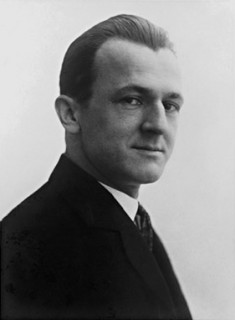
Three years earlier, “when white slavers marched through the streets of Rio in a ceremony to dedicate a new torah scroll for their synagogue, they were attacked by a crowd of young men from the respectable community who took away the torah and put the unclean ones to flight.”[38]
Yet in the middle of all this, Jewish pimps did not forget their roots, staying away “from Christian rescue homes from fear of eating non-kosher food, or even from fear of conversion.”[39]
In 1910, Chief Rabbi Adler of Britain blamed Jewish prostitution on the Russian persecution of 1881![40] As Bristow writes, there were anti-Jewish programs in 1881, but the good rabbi’s assessment is worthless, given the fact that Jewish prostitution predated that period.[41]
Bertha Pappenheim (1859- 1936), an Austrian-Jewish feminist, activist, and founder of the League of Jewish Women, portrayed a similar ideological disconnect. For instance, in reviewing the disproportionate number of Jews in white slavery (particularly around the turn of the century), she declared,
“We know that a large number of Jewish girls ply the trade of ‘free’ prostitution. We know that Jewish women can be found in brothels all around the world. And we know that in white slavery the majority of the traffickers and their wares are Jewish.”[42]
In 1912, she wrote, “It is always the Jews who are stealing, buying, and seducing the girls…Almost all the traffickers, pimps, etc. are Jews.”[43] She had made similar statements in 1910 at the Jewish International Congress for the Suppression of White Slavery.
Yet “when non-Jews named the Jews as the chief players in the white slave trade, she accused them of anti-Semitism. Indeed, in her report on the Fifth International Congress for the Suppression of White Slavery (1913), Pappenheim noted that she could discern in the reports and comments ‘the presence of a latent anti-Semitism in all of the nations.’”[44] This nonsensical double-talk has been the pattern for centuries.
The unfortunate result of Jewish revolutionary behavior has always been the rise of anti-Jewish attitudes. In Germany, this behavior was in part responsible for the rise of National Socialism. Adolf Hitler witnessed Jewish traffickers and prostitutes while in Vienna and then declared:
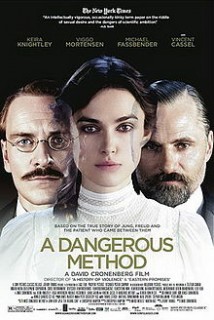 “In no other city of Western Europe could the relationship between Jewry and prostitution…be studied better than in Vienna…An icy shudder ran down my spine when seeing for the first time the Jew as an evil, shameless and calculating manager of this shocking vice, the outcome of the scum of the big city.”[45]
“In no other city of Western Europe could the relationship between Jewry and prostitution…be studied better than in Vienna…An icy shudder ran down my spine when seeing for the first time the Jew as an evil, shameless and calculating manager of this shocking vice, the outcome of the scum of the big city.”[45]
Even before Hitler came to power, Georg Ehrenfried, later George Grosz, who had personally known Lenin and Trotsky, was a well-known Communist pornographer in Germany. In 1940, he released the explicitly pornographic piece Erotic Drawing.
In his autobiography, he writes that in 1919 in Germany, just one year after World War I,
“A wave of vice, pornography and prostitution enveloped the whole country.”[46]
Yet Grosz never mentions that he himself was involved in producing pornography, as an “enthusiastic collector of pornography” and as someone who “produced sexually explicit images at every stage of his career.”[47]
In 1923, the same year in which Hitler attempted an unsuccessful putsch in Munich, publisher Wieland Herzfelde, who founded Malik Press, was charged with producing and promoting pornography.[48] During the same year, Grosz’s book Ecce Homo was also “confiscated as pornography.”[49]
Even after World War II, Jews returned to promoting prostitution, giving the spirit of anti-Semitism ammunition. Heinrich Gruber, who opposed Nazi Germany on Christian grounds, lamented that “many of the brothels and risqué night clubs, for example, were in Jewish hands, especially those in close proximity to the army camps.”[50]
He then urged Jews to stop playing in the hands of the enemy by fanning the flames of anti-Semitism. But that did not please Rabbi Richard J. Rubensein, who responded:
“I don’t understand why you are so troubled about a pitifully small number of Jews in shady positions or interested in making money rather than following more edifying pursuits.
“It seems to me that every person pays a price for the kind of life he or she leads. Why should Germany be upset about a few such Jews unless they are overly involved in other peoples’ lives? Must every Jew make himself so pale, so inconspicuous, even invisible, that he will give no offense to Germans?
“Is that the lesson Jews must learn from the death camps, that they must prove to the Germans their preeminent capacity for virtue? Wouldn’t it be far better if the few remaining Jews left Germany and went where they could live as they pleased, without worrying about what the Germans thought or felt about them.After what happened, why should any Jew remain and worry about German approval?”[51]
PROSTITUTION AND POVERTY?
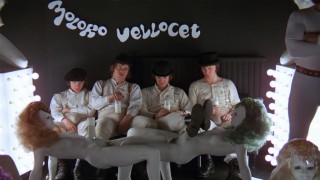
Some historians claim that prostitution was more rampant among poorer families, as a profession of last resort. While some Jewish prostitutes were poor, from dysfunctional families, or had been sold into prostitution, many were not. Galicia produced the majority of poor prostitutes, but even then “only a tiny minority of poor women became prostitutes.”[52]
Those that did were often tricked by Jewish traffickers such as Hirschfeld, who would prey upon poor Jewish families by “claiming he could introduce his victims to rich Turkish businessmen.”[53] The family-problem theory, however, was only plausible at the beginning of the twentieth century, and even then was only partially valid.
Toward the latter part of the twentieth century, it becomes nonsensical to attribute Jewish prostitution to poverty.
We have already seen in the previous article that Jewish scholar Nathan Abrams himself admitted that pornography have been used to weaken the foundation of Christian morals and attitudes.
Even Israel has been involved in commercial prostitution, as reported by Michael Specter of the New York Times in 1998. After detailing what is happening and giving specific examples, Specter concludes, “It’s a factory with slave labor. And we’ve got them all over Israel.”[54]
That pattern has remained constant—in 2007 BBC reported that from 1990 to 2000, “an estimated 3,000 women a year were brought to Israel on the false promise of jobs and a better way of life.”[55] By October 2013, the Israeli newspaper Haaretz tells us that “Israel becomes major hub in the international cocaine trade…”[56]
Jewish historian Andrea Friedman tells us:
“Rabbis entered into the anti-obscenity activism in the attempt to counter Christians’ perceptions of Jews as a different, alien, and more primitive people, by demonstrating that they shared the ‘Christian’ morals of their Protestant and Catholic brethren and by trying to control the behavior of other Jews.
“Prompted by the concern that Christian condemnations of obscenity might fuel anti-Semitism (and vice versa), they sometimes joined in such condemnation in self-defense…
“Jewish fears that anti-obscenity activism could become anti-Semitic activism were founded in an amalgam of prejudice and fact regarding the place of Jews in the American entertainment industry.”[57]
THE FEAR OF ANTI-JEWISH REACTIONS
 Rabbis such as Stephen Wise, Sidney Goldstein, and William Rosenblum all allied with the Catholic and Protestant groups to found “an Interfaith Committee on Decency to support the legion’s work in New York City.”
Rabbis such as Stephen Wise, Sidney Goldstein, and William Rosenblum all allied with the Catholic and Protestant groups to found “an Interfaith Committee on Decency to support the legion’s work in New York City.”
Goldstein did not deny the disproportionate number of Jews in the film industry: “If motion pictures are not kept unobjectionable, it is a species of national disgrace for us, in so far as Jews are responsible.”[58]
Goldstein was not alone. Samuel Marcus, a rabbi and an attorney for the Society for the Prevention of Crime, said that he and another individual “had visited one of the theaters in an attempt to induce the Minsky brothers, as fellow Jews, to cease ‘the commercializing of filth.’”
When that didn’t work, Marcus tried “to persuade government officials to put the Minskys out of business.”[59]
When the play The God of Vengeance came out (produced by Harry Weinberger), it was defended by rabbis Stephen Wise and Abraham Cahan. But the plaintiff before the grand jury was Rabbi Joseph Silverman. The motive again was quite clear:
“Those who opposed [the play] feared that its portrayal of Jewish prostitution (and perhaps, perversion) would undermine their efforts toward assimilation by reinforcing ancient prejudices linking Jews and immorality.”[60]
The rabbis involved in the anti-obscenity activism were largely Reformed individuals who did not draw their objections from rabbinical laws but from their own opinions.
Friedman declares, “As learned men, New York’s Reform rabbis might provide guidance and inspiration, but their authority to tell Jews how to behave was minimal.”[61] (This is clear from their liberal political leanings; Goldstein for example was a member of the American Birth Control League and the National Council on Freedom from Censorship.[62])
Some recent writers are playing fast and loose with the facts. Nils Johan Ringal, while admitting that there were Jews in the prostitution business at the dawn of the twentieth century, blames the “tabloid newspapers” for featuring “the Jewish middlemen” in the business.[63]
Ignoring a wide range of historical data and studies, Ringal continues, “Many newspapers portrayed prostitution as a worldwide Jewish pimping conspiracy, and their favorite stories were about cynical Jews who earned fortunes in the trafficking of human beings.”[64]
Ringal was very disingenuous here, for he was well aware of Bristow’s work. He even included Prostitution and Prejudice in his bibliography but he never seriously interacted with the thesis of the book! He certainly cannot be taken as a serious scholar here.
SUMMING UP

In short, prostitution, which progressively morphed into acceptable pornography in movies and other media outlets, is largely a Jewish creation.[65] This attitude has dominated many Jewish directors and for decades, including Eli Roth (Hostel), David Cronenberg (Cosmopoli), Darren Aronofsky (Black Swan), Stuart Gordon (Master of Horror, Castle Freak), Lars von Trier (Antichrist), Stanley Kubrick (A Clockwork Orange), Frank Miller (Sin City), etc.
But this moral subversion is not somehow ingrained in their DNA. Moral subversion is a choice. Morality itself cannot exist without practical reason, and practical reason is hopeless without the will.
Jewish revolutionaries made a conscious decision to attack reason in all its forms. And prostitution and pornography are two manifestations of a broader subversive framework which inexorably and ideologically springs from the Talmudic tradition.
Yes, some Jewish revolutionaries probably never read the Talmud, but its ideological and subversive nature is so widespread that one needn’t read the book to succumb to its premise.
For example, people like David Cronenberg probably have never read the Talmud, but Cronenberg in particularly has been highly influenced by Sigmund Freud’s ideology,[66] and he has unleashed that ideology in movies such as A Dangerous Method. After the release of the movie, the British newspaper The Independent admitted,
“The influence of Freud on cinema is so pervasive that it may come as a surprise that Freud himself has been portrayed on screen relatively infrequently. We have seen shrinks in countless comedies and dramas.
“We have seen many over-determined melodramas from the 1940s and 1950s that play like Freudian case studies, with heroines working through childhood traumas, overcoming kleptomania or amnesia or trying to decipher symbol-laden dreams.
“We have seen teen rebels with Oedipal desires. Even when there has been a backlash against Freud – “the great fraud”, as he was dubbed by the psychologist Hans Eysenck – it hasn’t worried Hollywood. Freud’s work has provided very rich pickings for screenwriters.
“Film-makers have testified to the influence of Freud. In a famous quote, Bernardo Bertolucci said that his experiences as a patient had enriched his creative life: ‘I found that I had in my camera an additional lens which was not Kodak, not Zeiss, but Freud.’
“And psychoanalysts are a leitmotif in Woody Allen’s work, even as he jokes relentlessly about them. In Annie Hall, Allen’s Alvy Singer quips: ‘I was in analysis. I was suicidal. As a matter of fact, I would have killed myself, but I was in analysis with a strict Freudian and if you kill yourself they make you pay for the sessions you miss.’ The talking cure doesn’t come cheap.”[67]
When asked the question, “Why Freud”?, Cronenberg responded:
“Some people have said, ‘This is a departure for you.’ My first film is a seven-minute film called ‘Transfer’ and it was about a psychiatrist and his patient. The relationship between a psychoanalyst and a patient had not existed before Freud. It’s uniquely intimate, very clinical and yet emotional. It’s interesting that we can invent a new kind of human relationship that needs to be explored artistically as well as clinically.”[68]
Freud basically argued that the West needs to stop suppressing sexual needs, and psychoanalysis was a major breakthrough in attacking the Western sexual tradition. Freud himself declared, “I stand for an incomparably freer sexual life.”[69] (We shall turn to Freud’s wicked ideology in due time.)
Cronenberg continued the essentially Freudian tradition that sex can be used as a weapon in the war against Western culture.
Cronenberg “frequently refers to Freud in public interviews, especially to the Freudian theses that civilization is based on repression, that dreams are the ‘royal road’ to the unconscious, and that art can be a safe vicarious oulet for repressed instinctual desires…Freudian determinism colors and shapes [Cronenberg’s] entire oeuvre.”[70]
Let us here Cronenberg himself:
“Real art must be subversive to the status quo. It doesn’t mean that you’re preaching political revolution necessarily—although that may be a possibility. It’s inevitable, then, that if you consider yourself an artist, that you’re going to bother people, that you’re going to disturb people, and that you’re going to knock over a few walls…There is an urge to go under the surface of things, and sometimes I do that literally.”[71]
In response, I would have to say that it is inevitable that you’re going to bother people when you discuss Jewish revolutionary movements and that you’re going to be called names. But let the truth fall like a mighty stream, and those who are of the truth will ally themselves with it. Fear should not get the best of us. At this critical time in our history, fear must be rooted out once and for all.
“Israel Women Trafficking Soars,” BBC, March 24, 2005; “Inquiry into Brothel Fires,”
BBC, August 16, 2000; “Israeli Sex Trade under Fire,” BBC, May 18, 2000.
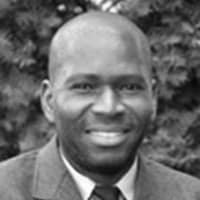
Jonas E. Alexis has degrees in mathematics and philosophy. He studied education at the graduate level. His main interests include U.S. foreign policy, the history of the Israel/Palestine conflict, and the history of ideas. He is the author of the new book Zionism vs. the West: How Talmudic Ideology is Undermining Western Culture. He teaches mathematics in South Korea.
ATTENTION READERS
We See The World From All Sides and Want YOU To Be Fully InformedIn fact, intentional disinformation is a disgraceful scourge in media today. So to assuage any possible errant incorrect information posted herein, we strongly encourage you to seek corroboration from other non-VT sources before forming an educated opinion.
About VT - Policies & Disclosures - Comment Policy



